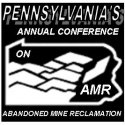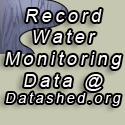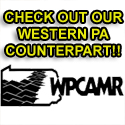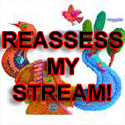The Chesapeake Bay Foundation awarded EPCAMR $5,000 to go towards teaching local students about environmental issues in their watershed. The CBF has even launched a new online environmental learning series designed to be a resource for teachers, parents, and students during the COVID-19 pandemic.
EPCAMR’s grant coordination will be conducted in the Fall of 2020 with students from the Wilkes-Barre Area School District as we continue to work with Mike Corcoran, who has been a long-time partner with EPCAMR on many grants over the last few decades. Mike will help to decide which classes can participate in the grant in the Elementary School System. 
“This grant will help us build stewardship for our watersheds in our local youth and their families. We recognize that children are our future leaders, so it is crucial to teach them about local environmental issues and help them understand they have the power to directly help,” says Environmental Educator at EPCAMR, Laura Rinehimer, who is leading the project. EPCAMR Program Manager Michael Hewitt added, “It’s important for kids to understand what they do. Their habits can greatly impact our environment and society, in general. If we learn good habits early, it’s not so hard for us to change them later.”
The original grant, which consisted of students going on an interactive field trip and leading their own action project, needed to be changed due to Covid-19. Instead of being able to physically take students to locations in our watersheds, EPCAMR will be creating boxed kits to send to the students with everything they need for a virtual tour. Accompanying videos will be created to allow students to “visit” the locations from the safety of their homes. These boxes include an informative guided nature journal, an original board game created by EPCAMR staff, and other materials to complete science exploration activities. Laura Rinehimer stated, “We want the kits to be a hands-on way for children to have fun exploring and learning about their local environment so that they can fall in love with nature in their own communities and feel empowered to protect it.”
game created by EPCAMR staff, and other materials to complete science exploration activities. Laura Rinehimer stated, “We want the kits to be a hands-on way for children to have fun exploring and learning about their local environment so that they can fall in love with nature in their own communities and feel empowered to protect it.”

Students from the Bear Creek Charter School learning about how to identify macroinvertebrates with EPCAMR.
The kits will teach children about the different types of pollution impacting our watersheds, emphasizing abandoned mine discharge (AMD) leading to iron oxide deposits in our water. This is harmful to aquatic life, coating the gills of small fish, inadvertent drinking of the polluted mine water by small animals, reducing light needed for photosynthesis in aquatic plants and algae, and leading to sediment buildup which smothers food sources and spawning beds. The emphasis, however, will be about the solutions to our environmental problems. Michael Hewitt stated, “We find it important to treat mine drainage and other nonpoint source pollution at its source in the headwater tributaries to limit the impacts of dead zones and sediment downstream and eventually to the Chesapeake Bay.”

EPCAMR Executive Director Bobby Hughes with some excited and enthused fellow students from the Heights Murray Elementary School in the Wilkes-Barre Area School District at an outdoor Environmental Education Program at Francis Slocum State Park.
Students will learn about active and passive treatment systems used to reduce the AMD entering our waterways. They will also learn about ways to directly help keep our waters clean, such as protecting and planting riparian buffer zones, conducting streamside cleanups, and making their voices heard in future environmental litigation. Cleanup materials will be included in the kits so that students can make a difference in their own communities. Families are encouraged to send footage of litter cleanups so that EPCAMR can compile them into one video showing the powerful synergistic impact of many people making small positive changes.
Executive Director of EPCAMR, Bobby Hughes said, “EPCAMR teaches area youth that their local neighborhoods are a part of nature and the environment when they don’t often see “outside” as a part of their watershed address. We do our best to give them our place-based education philosophy. Our goal is to provide them meaningful outdoor learning experiences so that they can connect with their surrounding landscapes. No matter where they live in the Wilkes-Barre Area School District they are indirectly tied to the Chesapeake Bay through the Susquehanna River and its headwater tributaries.”
Contact Laura Rinehimer, EPCAMR Environmental Educator for project details @ 570-371-3522 or lrinehimer@epcamr.org.














You must be logged in to post a comment.